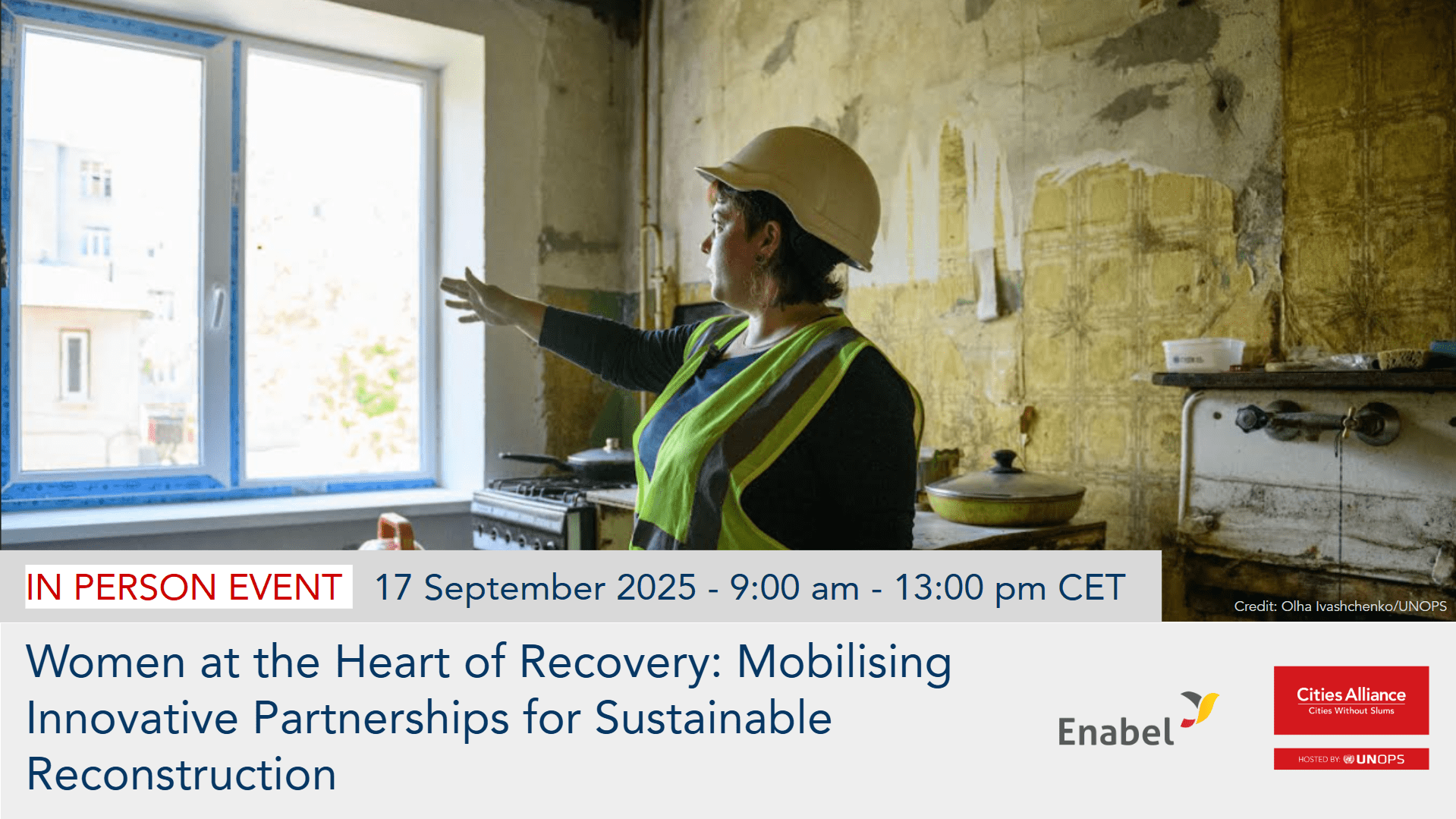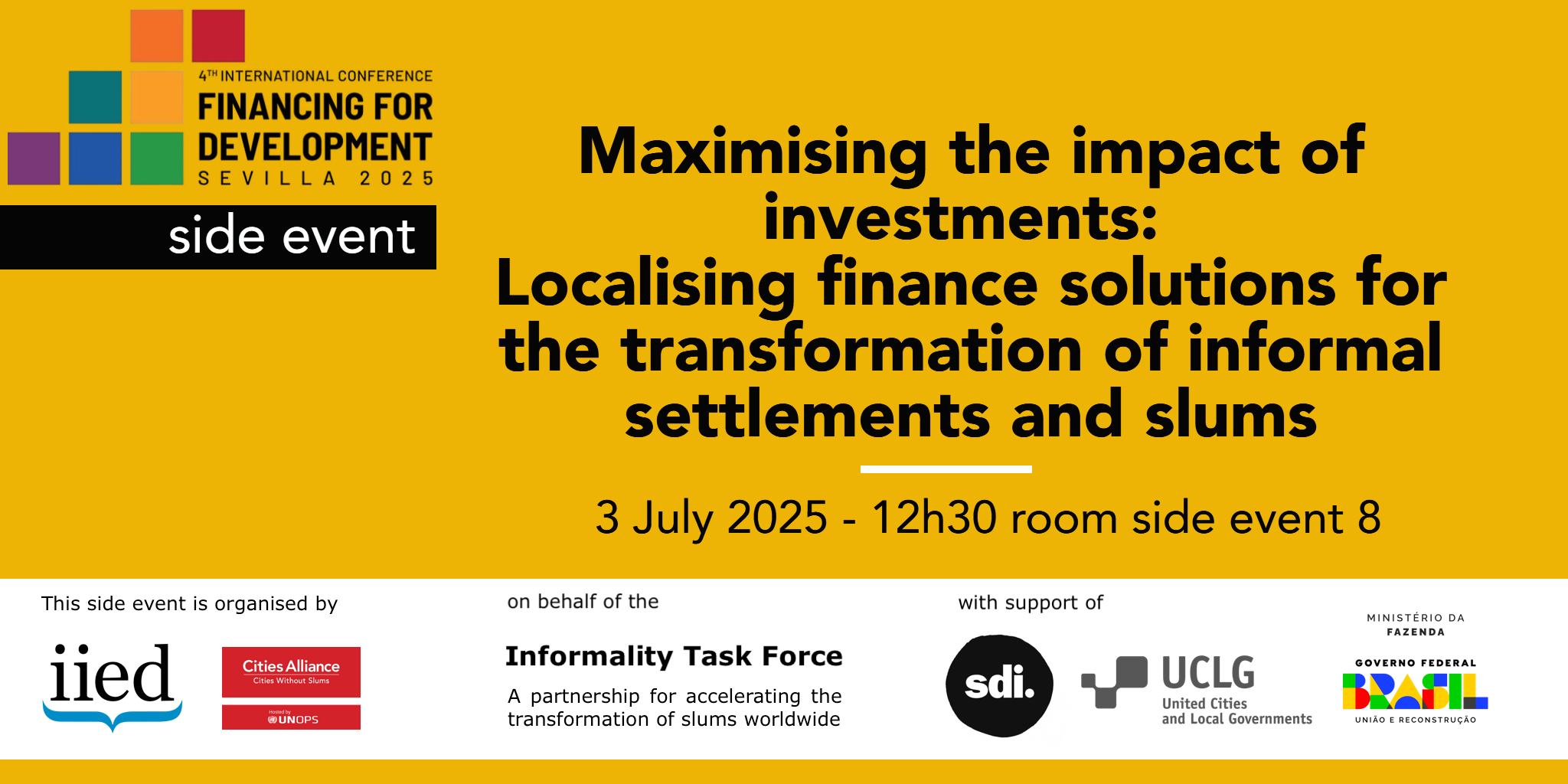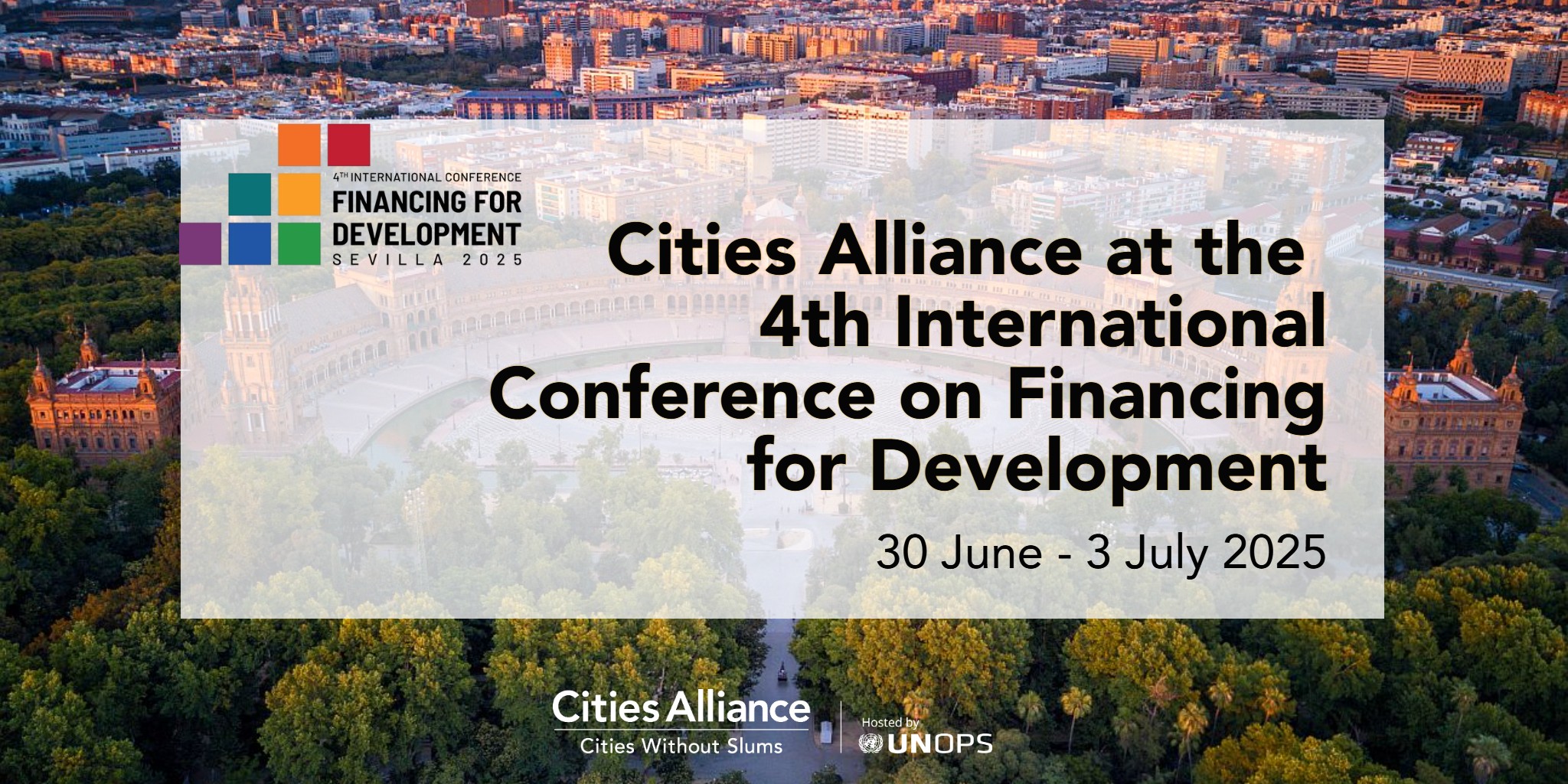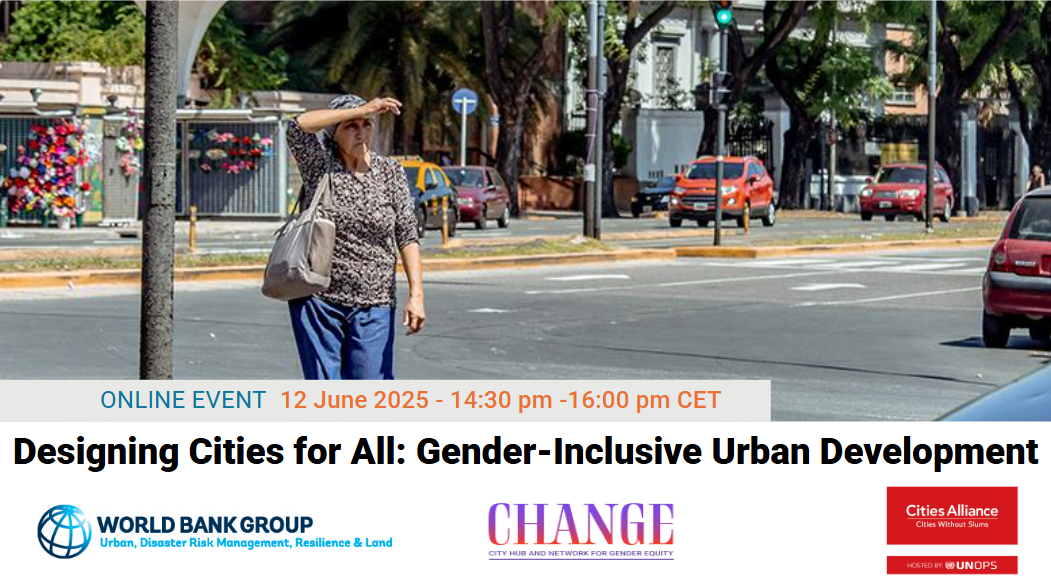- Who We Are
- How We Work
- Regional / Country Initiatives
- Legacy
- Core Themes
- Working Groups
- Portfolio & Results
- Newsroom
- Resources
WEBINAR - Learning from Cities to Advance Gender Equality
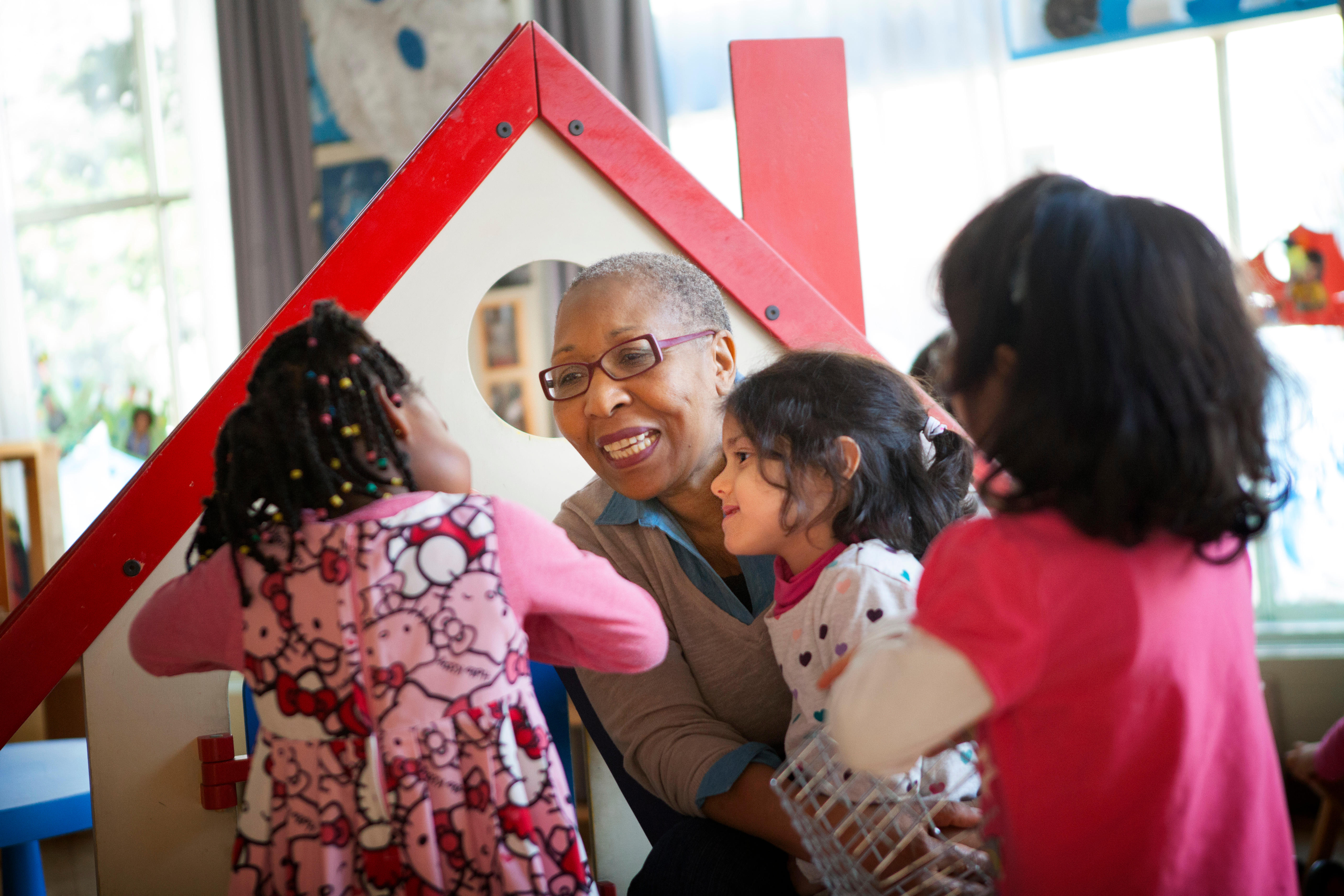
The new EU Gender Action Plan in light of the COVID-19 crisis. Discussion with the Mayors of Banjul and Tunis.
#Cities4Women | #LocalEquality
Friday, 26 June 2020
15.00-16.30
Background
Following the adoption of the new EU Gender Equality Strategy 2020-2025 in March, the European Union (EU) will adopt a new Gender Action Plan for external relations in 2020. In light of the COVID-19 crisis, the EU budget will be also revised. It is a tremendous opportunity to recognise and capitalise on the key role that cities play in achieving gender equality in the EU and beyond.
The EU is committed to promoting gender equality in its external activities and has made considerable advances over the years. The political commitment to gender equality seems to be reinforced in the Von der Leyen Commission, and the next step is to ensure the successful implementation and translation of policies and political will into practice. The question is no longer ‘why’ but ‘how’ can we mainstream gender in the EU’s internal and external action.
It’s time to look to cities and their concrete measures and implementation modalities.
Cities are the perfect forum for reflecting on central questions such as equality, justice and the common good. They are at the core of democratic development around the world, and it is the everyday work carried out by community organisations, municipalities and regions that catalyses the change that is fundamental for equitable, inclusive and sustainable global development.
With the spread of the COVID-19 epidemic and resulting challenges faced all over the world, it is more important than ever to leave no one and no place behind. Collaboration is essential.
The event will explore the actions of cities and communities in defending gender equality when responding to COVID-19 and will look at the gender-perspective in the COVID-related measures. The webinar will also look at the EU Strategy on Gender Equality and GAP III from the local perspective and define possible recommendations for gender-responsive recovery actions and collaborations.
Programme
Moderated by Giulia Maci, Head of the Cities for Women Programme, Cities Alliance
Introduction, Jaimie Just, Policy Advisor – Equality and Diversity, CEMR
Panel:
The EU Gender Equality Strategy 2020-2025, Lesia Radelicki, Cabinet of Commissioner Dalli
Cities and regions driving gender equality:
Silvia Baraldi, CEMR Spokesperson on Gender Equality and Local Councillor of Legnano, Italy
Souad Abderrahim, Lord Mayor of Tunis
Rohey Malick Lowe, Lord Mayor of Banjul
The role of civil society in pushing forward gender equality:
Alicia Wallace, Director, Equality Bahamas
Oksana Abboud, International Coordinator StreetNet International
Q&A
About the organisers
Cities Alliance/ Cities Alliance Cities for Women Programme
Cities Alliance is the global partnership fighting urban poverty and promoting the role of cities to enhance the well-being of urban populations by delivering innovative, multi-sectoral solutions to urban poverty.
Cities Alliance envisions a world where all women and girls can live in inclusive and equitable cities and communities. By mainstreaming gender through all its country and global programs and engaging in women-focused city development activities, the CA supports women’s access to city resources, increases the commitment of local governments and key stakeholders in creating cities that are more inclusive for women and girls and fosters gender-awareness and competence in the political arena and planning practice.
Council of European Municipalities/PLATFORMA
The Council of European Municipalities and Regions (CEMR) represents the interests of Europe’s local and regional governments and brings together the national associations of local and regional governments from 41 European countries. It promotes the construction of a united, peaceful and democratic Europe founded on local self-government, respect for the principle of subsidiarity, the participation of citizens and exchange between elected representatives.
In order to promote gender equality at the local and regional level, CEMR launched the European Charter for Equality of Women and Men in Local Life in 2006. The Charter is both a political document and a practical instrument. It encourages local and regional governments to make a public commitment to equality and to implement its principles.
PLATFORMA is the pan-European coalition of towns and regions – and their national, EU and global associations – active in city-to-city and region-to-region development cooperation.

